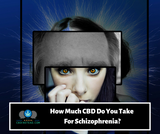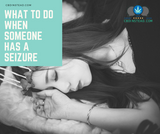When you get into a car accident and break your legs, you are likely going to be prescribed pain medication while it heals. Once your bones are back together, you’ll likely be advised to go to physical therapy to remind your body how to work and to strengthen the muscles you haven’t used in so long. When you have a mental illness, many people forget about the therapy aspect of treatment. Just like a physical ailment, a mental health condition needs more than just medicine for you to get the best out of treatment. Here are a few different types of therapy for depression that have shown in studies to be effective.

How do You Get Depression
We aren’t entirely sure why we get depression, but researchers have found some factors that evidently contribute to this gloomy phenomenon. While depression is usually labeled a chemical imbalance, researchers suggest that it is a combination of several influences.
- Faulty Mood Regulators
- Genetic Vulnerability
- Stressful Life Events
- Medication
- Medical Issues
This may be why there isn’t one treatment option that works for every individual. Because all of our brains and experiences are different, our treatments have to be tailored to our needs. Researchers have found genes that make someone more vulnerable to developing depression; however, they have yet to create a treatment plan based on the knowledge.
Researchers have also found that the hippocampus is smaller in individuals who have depression. Stress may be a key factor because experts believe that stress can suppress the production of new nerve cells in the hippocampus. High stress for long periods of time has also shown to overproduce chemicals that can cause brain changes that lead to depression. This chemical reaction happens in our body all of the time, but if it goes on for too long, it can cause long-lasting brain damage. These brain changes make it difficult to function in everyday life which is why anti-depressants are such a common treatment option.
Depression is complex, no doubt about it. There are a ton of different kinds of medications you can take to help your brain feel more on the ball. But just like a physical injury, medication isn’t likely the cure-all for your condition. Looking into therapy is a good idea if you want to defeat this beast trying to eat you from the inside out.
Different Types of Therapy for Depression
Cognitive Therapy
Cognitive Therapy is based on the idea of cognition which is the process of gaining knowledge and using it to form beliefs which in turn influences your mood and behavior. Cognitive Therapy focuses on cognitive disorders like:
- Impaired Learning
- Memory Function
- Systematic Negative Bias in Thinking
By focusing on these cognitive disorders, therapists are able to improve your depressive mood and behavior.
Behavioral Therapy
Behavioral Therapy is rooted in behavioralism which focuses on the idea that we learn from the environment we live in. Unlike many therapies which are psychoanalytic, behavioral therapy is action-based. In this type of therapy, your doctor will focus on using learning strategies that led to you developing unwanted behaviors. This type of therapy tends to be highly focused, and the goal is to teach you new behaviors and change your undesired behaviors.

Cognitive Behavioral Therapy
Cognitive Therapy and Behavioral therapy work well together to help fight depression, so they are often combined into one therapy called Cognitive-Behavioral Therapy (CBT). The idea is that thoughts can affect our emotions, which makes sense. How many times have you gotten mad at someone after remembering something they did that made you upset? The idea is to use this knowledge and start forming your thoughts to improve your mood. If you are always looking at the sunny side of things, it’s likely you’ll have a brighter outlook.
Dialect Behavior Therapy
Dialect Behavior Therapy is for people who are seriously in the hole of depression and wondering if they will ever see the light of day again. Studies on DBT with suicidal individuals has shown that it is very effective in:
- Learning to Cope with Stress
- Regulate Emotions
- Improve Relationships with Others
- Reframe Negative Thinking
Dialects is based on the idea that everything is made of opposites, and change occurs when an opposing force is stronger than the other. Psychologists believe that some individuals are prone to have more intense reactions to certain emotional situations, usually involving a relationship. Psychologists believe that some people experience more emotional stimulation than others and have a harder time getting back to baseline levels. DBT is supposed to help individuals learn how to cope and how to manage their extremes. DBT has shown to be very successful in individuals who suffer from suicidal thoughts and is thought to be a good treatment for personality disorders, as well.
Mindfulness-Based Cognitive Therapy
Mindfulness-Based Cognitive Therapy (MBCT) combines cognitive therapy and mindfulness. MBCT is designed for people who suffer repeated episodes of depression and chronic unhappiness. Therapists help to develop a psychological intervention to increase mindfulness and decrease negative and repetitive thoughts. Being mindful is about being aware of your surroundings and being present in the moment without letting the world around you influence your thoughts or feelings. This can be very difficult to accomplish by yourself; luckily someone invented therapy.
Psychodynamic Therapy
Psychodynamic Therapy is used for individuals who developed depression because of unresolved conflict, usually originating from childhood. Psychodynamic therapy helps you become more aware of the full range of emotions that you have, even including the bad ones to help you more effectively cope with them and learn how to endure them for additional perspective.
In therapy, you’re encouraged to speak freely, talking about your current issues, dreams, desires, and fears. Your therapist’s goal is to help improve your self-esteem, improve your ability to maintain meaningful relationships, and reduce your depressive symptoms.
Tips on Finding the Right Therapist

It can be a little scary going to see a therapist for the first time or even the tenth. You are meeting someone who you are about to pour your soul out to and that puts you in a vulnerable situation. Luckily, there are things to look out for to make sure that you are receiving the best treatment for the best person for you.
Gender
One thing that might not cross your mind at first is keeping in mind their gender. While we are in a time where this might not be the most politically correct thing to say, it is important that you are completely comfortable with the person who sits on the other side of that table. If you grew up with a close relationship with your mother and find it easy to open up to maternal figures, look for that in a therapist. If you grew up fearful of the male gender, then a male therapist isn’t where you should start facing your fears.
Credentials
A good therapist should have a way for you to see what school they went to, what degrees they have, and what they specialize in. It is safe to say that you may want to be wary of the doctors who have a five-column list of things they specialize in, you want someone who really knows what you are going through and how to cope with it. Someone who specializes in just a few things gives themselves the ability to put more focus toward that subject.
A Therapist’s Therapist
A good way to know whether or not your therapist is taking the work home with them and letting it chip away at their inner soul is whether or not they have their own therapist. The job of a psychologist can be mentally exhausting, without the right care it can wear anyone down. If your therapist is taking care of their own mental health, it is likely that they will be successful in helping you to do the same.
Trust Your Gut
If you feel uncomfortable talking with your therapist, you don’t have to force yourself to go to them. If they say something that strikes you wrong or upset you if you walk out wondering if anyone even knows what bedside manner is, find a new doctor. Your instincts will alarm you of any red flags that you don’t pick up immediately, so be sure to listen. Your gut will also tell you when things feel right, be sure to have an open mind going in.
How Using CBD Oil can Help with Your Depression?
One of the main reasons people try to deal with depression on their own without medication is because the side-effects of antidepressants can sometimes be worse than the depression itself. Not to mention that sometimes the side-effect can be thoughts of suicide, which is something we are trying to avoid. Unfortunately, when your brain is working against you, it makes fighting this illness feel almost impossible.
Something you can consider is taking CBD oil for your depression while you utilize one of these therapies. CBD oil has been very successful in the early stages of testing for treatment of depression. Scientist found in rodent models that CBD oil offered antidepressive effects in just thirty minutes. In the study, they discovered that CBD oil elevates chemicals that are normally lacking in the depressed brain while offering repairing effects and stronger connections in the hippocampus. While more studying is needed to claim this to be a cure for depression, many people have found that it has helped them through their illness. If you think CBD is worth a try, be sure to let your doctor know so they can help monitor your symptoms with you so you can find out what the best treatment plan is for you.













